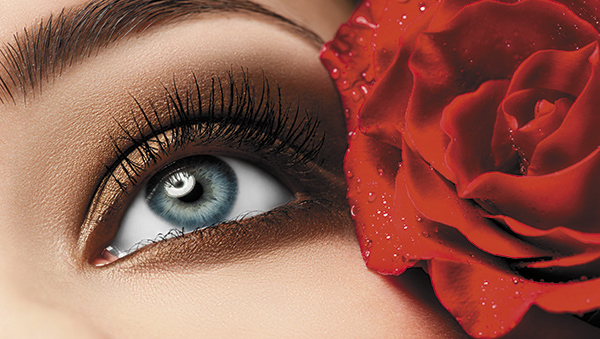Protecting and caring for vision is easy. All it takes is a few simple steps.
Most people put in a lot of effort to make their eyes look good. The makeup industry can vouch for this. Sadly, even though a lot less effort is required to ensure their vision is perfect too, it is an area often ignored. Common excuses for not caring include not knowing what to do and not having enough time to do so. The truth, however, is that simple habits can easily protect your eyes from damage.
1) EAT RIGHT
The simplest thing — all you have to do is eat foods rich in Omega-3 fatty acids, zinc, Vitamin A and Vitamin C. Studies have shown that regular intake of Omega-3 fatty acids helps reduce the occurrences of dry eyes syndrome, to an extent. Having well-balanced meals that include healthy foods will also help other major organs in your body.
2) PROTECT YOUR EYES FROM UV RAYS
While it is important to get your daily dose of Vitamin D through sunlight, it is equally important to protect your eyes from damaging UV rays. Just put on a pair of sunglasses or use a photochromic lens coating on your prescription lenses before you leave home. If you’re headed to the beach or a playground, throw on a hat as well.
3) LONG HOURS ON A COMPUTER
If your job demands that you spend long hours stationed before your computer, you have probably experienced dry eye syndrome. A simple way of avoiding this is to keep blinking as often as is possible, while working on any digital device. You can also follow the 20-20-20 rule where you look 20 feet into the distance for 20 seconds, every 20 minutes. Also keep the screen of your machine at least two feet away from you, in the middle of your visual field and preferably just below eye level.
 4) EXERCISE WHENEVER POSSIBLE
4) EXERCISE WHENEVER POSSIBLE
Being fit and active is important for your overall well-being. It helps the heart pump blood more efficiently and ensures better blood circulation to all parts of the body, including your eyes.
5) AVOID SMOKING
Did you know that people who smoke are four to five times more likely to get macular degeneration, a serious eye disease, than those who don’t smoke? It’s the perfect reason to kick the butt or at least reduce your smoking.
6) REGULAR TESTS
Most people presume they need to go for an eye test only if they experience difficulty in their vision or need to update their prescription glasses. This is simply not true. It is advised that adults should go for an eye test every six months, while children should be taken for an examination annually, until they hit their teens.
7) WEAR AND USE EYEWEAR RIGHT
Ensure you are wearing the correct prescription for your spectacles as well as contact lenses. Wearing an incorrect prescription will not only multiply your vision difficulties, it could also be potentially dangerous for your vision. Ask your eye care practitioner to guide you about the right lens tints that will suit your lifestyle and working habits.
Most people instinctively reach for the nearest piece of cloth to wipe their spectacle lenses dry, which might not be a good idea. One should clean spectacle lenses with a warm water and soap solution before wiping them dry with a soft cloth. Never wipe the lenses with tissue paper or stiff cloth like jute, as it might leave scratches on the glasses, impairing vision.
Similarly, follow the standard suggestions provided while caring for contact lenses. Most eye care practitioners lament that their patients often abuse, misuse or overuse their senses. This could be one reason why they end up with red or itchy eyes and blame it on the contact lenses.
As you can see, caring for your eyes is not difficult. It just calls for a few changes. And it is worth the effort.
– Vinita Bhatia
Adults should go for an eye test every six months, while children should be taken for an eye examination annually until they hit their teens.








